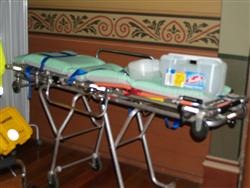
Medical Careers - Study Medical Terminology to progress in the health and science fields
Understanding medical terminology is important for anyone working or wanting to work in the field of medicine or health studies.
This medical language course is studied by distance learning and will improve your understanding of medical language and its use.
-
There are lots of health and medical support jobs available, these include medical receptionists, medical sales staff, office staff etc.
-
This course allows you to speak and understand the language used in clinics and hospitals - study Medical Terminology and gain a critical skill needed to work in this type of job
This course is relevant to anyone working or wishing to work in fields of health, alternative medicine or para medical areas; such as reception for a doctor or natural therapist.